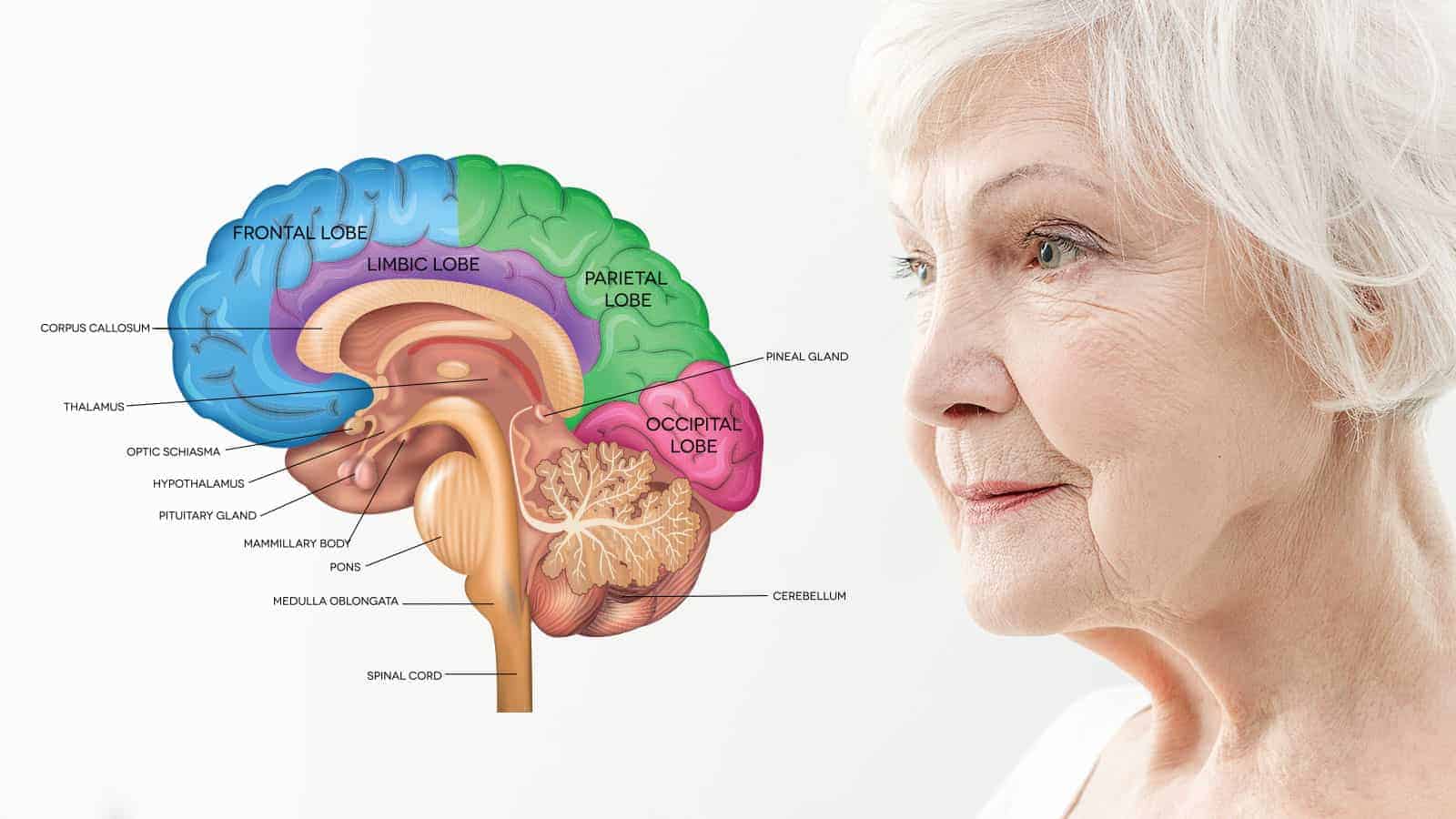Your brain is a powerful organ that can do many things but, over time, the structure and function can change. As you age, you might notice that you can’t remember things as well as before. Figuring out how to keep your mind sharp is essential so you can use it to its full ability throughout your life.
The memory problems that you experience as you get older are common. They can slow your cognitive processes, though, making it hard to learn new things and ignore distractions. These changes can be frustrating, but you can learn to keep your mind sharp and work around them.
Figuring out how to keep your mind sharp improves your memory and thinking skills and strengthens your mind. The best part is that you are never too old to start exercising your brain. People of any age can implement ways to keep your mind sharp, helping you maintain your brain strength.
Since your brain is involved in every part of your life, you must take care of it. This organ is responsible for all of your thoughts and actions, so brain exercises are essential. Once you learn how to keep your brain sharp, utilize the tips so that the functionality doesn’t go to waste.
How to Keep Your Mind Sharp
Do you want to know how to keep your mind sharp for life? Keeping your brain healthy and sharp for longer starts with these eleven good habits.
1. Keep Learning
Keeping your mind sharp begins with learning new information can help with maintaining brain cells. It also stimulates communication. Pick up a new skill or begin learning something new so that you can keep your mind sharp as you age.
Does reading keep your brain sharp? You bet!
Consider expanding your vocabulary because research shows that it involves the auditory and visual processing centers. You can do this exercise by reading complicated words and keeping a log of the ones you aren’t familiar with. Then, every day, pick a few words from the list to use in conversation throughout the day.
Another beneficial way to keep your mind sharp is by learning a new language. Bilingual people have better visual-spatial skills, increased creativity levels, and better memory. Learning a new language can also help you switch between tasks without becoming distracted, and it can delay cognitive degeneration.
2. Use All Your Senses
Studies show that when you engage all of your senses, it can strengthen your brain. Look for activities that involve using all five of your senses. As you do these activities, focus on hearing, seeing, tasting, touching, and smelling all at once.
When you do activities that engage all of your senses, it helps maintain brain strength. Plus, it helps you stay grounded and mindful in each moment. It encourages you to pay attention to the world around you, allowing you to understand and interact better.
Many activities involve all of your senses, but some ideas include:
- baking cookies
- visiting a farmer’s market
- trying a new restaurant
- going on a picnic
3. Repeat What You Learned
Anytime you learn something new, repeat it to reinforce memorization and connection. When you hear, read, or think something you want to remember, repeat it or write it down. As you do this, your mind processes the changes, helping you recall them later.
4. Make A Mnemonic
A mnemonic is a way creative way to remember things that follow a particular order. Mnemonics can be acronyms or sentences, depending on what it is you’re trying to remember.
For lists, acronyms typically help best. On the other hand, sentences can help with memorizing musical notes or letter patterns.
Using mnemonics to help remember something can help keep your mind sharp. You can quickly recall things you have learned, and you will have an easier time coming up with quick memory tricks later on.
5. Space Out Learning Sessions
Repetition is a beneficial learning tool, but you must time it properly. If you repeat something many times in a short period, you likely won’t remember it any better. However, if you repeat something and then wait a while before doing it again, your memory of the topic will increase.
If you’re studying for a test, avoid cramming just before you take it. Instead, repeat the information once an hour initially, then increase the time to every few hours. From there, repeat it every day instead.
As you space out learning sessions, you can master complicated information and keep your brain sharp. It helps with recall in people of any age, so implement this learning technique right away.
6. Exercise Regularly
Physical exercise is another way to keep your mind sharp as you age. Since your body and brain are connected, regular exercise improves your memory and cognitive skills. Even going on a walk can offer many benefits to your brain health.
Studies show that the impact on your foot during a walk sends pressure waves through the arteries. These pressure waves increase blood flow, promoting a healthy mind. There are some other ways to boost blood flow to your brain, too, including:
- hiking
- playing tennis
- walking your dog
- water aerobics
- yoga
Tai-chi is a form of exercise that research shows can alter your brain structure and processing. As it changes your brain, it allows your brain to reach its full ability. Tai-chi also helps reduce stress, promotes sleep quality, and improves memory.
7. Follow A Healthy Diet
If your body doesn’t have all of its essential vitamins and nutrients, your brain health suffers. Following a healthy diet helps you keep your mind sharp as you age, and there are plenty of food options to choose from.
Experts recommend eating a nutritious diet rich in whole grains, vegetables, and fruits. Additionally, avoid foods that are full of saturated fat and sugar.
Aim for foods that have Omega-3 fatty acids, such as salmon, which are the building blocks of your brain. Green tea contains polyphenols and antioxidants that help improve alertness and focus. Plus, blueberries also contain antioxidants, which promote brain cell communication, delay short-term memory loss, and reduce inflammation.
Eating eggs will give you a sufficient number of vitamins B6, B12, folate, and choline. These nutrients help regulate mood and memory through a neurotransmitter called acetylcholine.
8. Get Enough Sleep
If you don’t get enough sleep, you will struggle with memory, concentration, and other essential cognitive functions. Plus, you won’t learn new skills as easily when you suffer from a lack of sleep. Aim for around eight hours of sleep each night, and try to stick to a consistent routine.
Choose a bedtime that works for you and stick to it, even on the weekends. Additionally, avoid heavy food before bed because it can irritate your stomach and make you lose sleep. Choose a light and healthy snack instead if you feel hungry at night.
Limit stimulants such as coffee, soda, cigarettes, or chocolate for at least four hours before bedtime. Plus, while alcohol might make you feel tired or help you fall asleep, it disrupts your REM and slow-wave sleep. Avoid drinking alcohol before bed to aid in a restful sleep cycle and improved cognition.
9. Listen to Music
Music is entertaining and enjoyable, but it also improves memory function. Listen to your favorite songs, or choose an entirely new playlist to enjoy. As you do, your brain experiences increased cognitive function.
Listening to music can help you come up with innovative solutions, promoting creativity and brainpower. If you’re feeling up to it, get up and dance to the music, too. Studies show that dancing boosts your memory, speed, and cognitive processing ability.
10. Share Your Knowledge with Someone
Teaching someone what you already know is a great way to keep your mind sharp. It expands your knowledge, allows you to practice, and reaffirms the skill in your mind. As you share your knowledge, it forces you to explain your concept and gives you a chance to correct your mistakes.
When you’re learning something new, sharing your new knowledge will help solidify the concepts. If you’re new to tennis, show someone else how to swing the racket, and explain the steps as you go. You might identify something you’re doing wrong, too, and can fix it right away.
11. Meditate
Meditation is the last, but not least, of these tips on how to increase mental sharpness.
With a clear mind and positive thinking, your mind can stay sharp as you age. Meditation increases your brain’s abilities and promotes processing and memory. Just ten minutes a day is enough to help your brain restore itself, but you can extend that time.
As meditation calms your body, slows your breathing, and reduces stress, it enhances your cognitive ability. When you are at peace, your brain doesn’t have to focus on stressors as much, allowing you to use it to its full potential.
Final Thoughts on How to Keep Your Mind Sharp as You Age
The power of your mind is incredible, but you must figure out how to keep your mind sharp as you age. If you don’t continually exercise your brain, you miss out on much potential and functionality. Focusing on keeping your mind sharper allows you to experience improved concentration, focus, memory, and overall cognitive function.
Plus, along with all of those benefits, you might learn something new or exciting along the way. Even if you haven’t noticed a change in your cognitive function, start implementing some of these changes right away.

















 Community
Community

